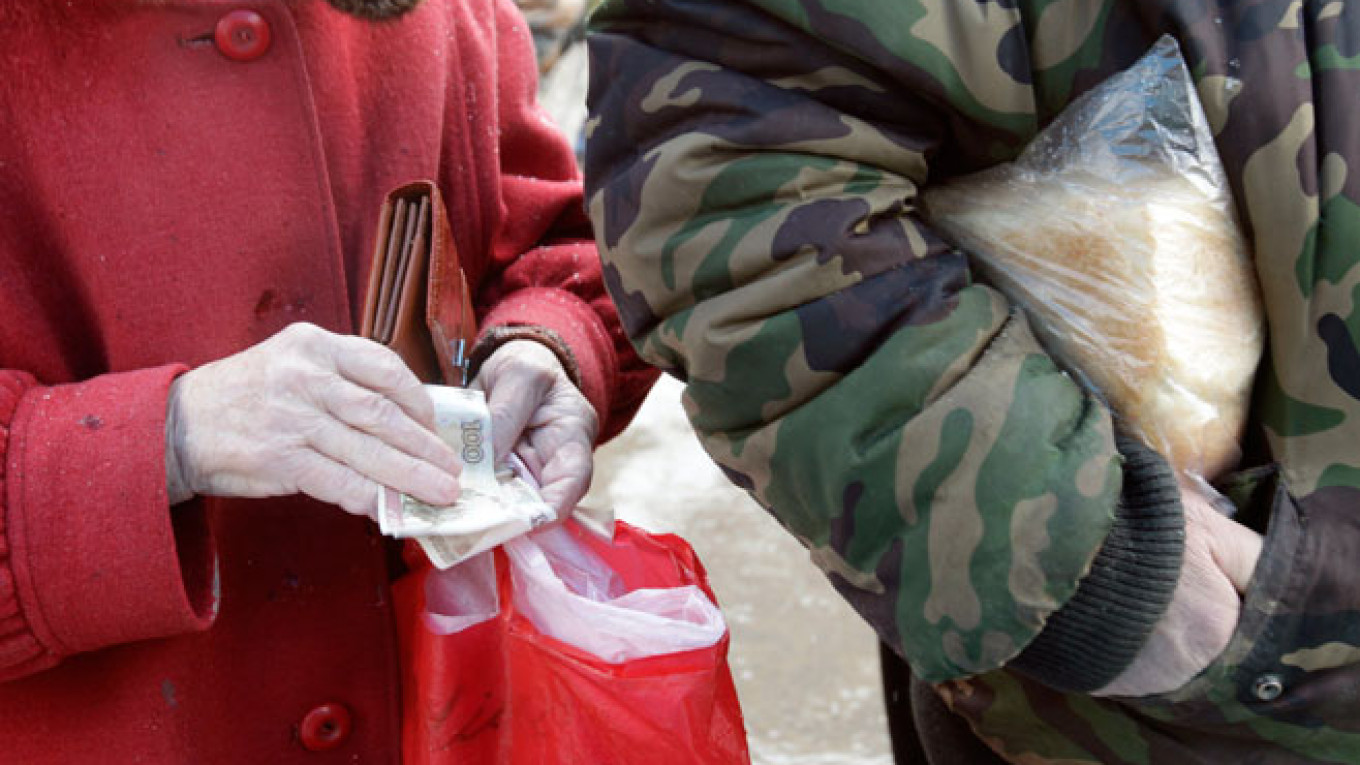Sometimes willpower alone is enough to achieve victory against overwhelming odds. A person born with physical disabilities goes on to become an Olympic champion, a small country outfights a larger opponent to win the war, and so on.
At the same time, there are situations when all the willpower in the world is of no use — for example, in attempting to overcome the laws of mathematics, the laws of nature and, yes, even the somewhat less rigid laws of economics.
Now, after six months of counter-sanctions — Moscow's ban on imports of a wide range of foreign food products — observers have been actively asking why those measures have not led to a significant growth in demand for domestic foodstuffs.
Although slight increases did occur in some areas, no overall positive trend resulted. In fact, just the opposite occurred: prices rose across the board and demand fell. Why? Because it was physically impossible for anything else to happen.
Import substitution — that is, supporting domestic manufacturers with subsidies or protectionist measures — is always achieved at the expense of consumption. What's more, that rule applies to every sector of the economy, not only foodstuffs.
It is a simple concept, one even my seventh-grade students easily understood from the following illustration: Suppose that a horizontal axis represents the quantity of a given product and the vertical axis represents the price. The demand curve runs from the upper left to the bottom right, and the supply curve from the lower left to the upper right.
What happens when counter-sanctions restrict imports? The supply curve shifts leftward and upward. Now the supply and demand curves intersect at a point at which prices are higher and demand is lower than before restrictions were imposed.
The same result occurs no matter how you draw the supply and demand curves. In fact, demand will grow only under one narrow set of conditions — when prices decrease and supply increases. And that immutable law applies no matter how intelligently an official pronounces the words "import substitution" and no matter how much willpower everyone involved in the process demonstrates.
We can also use these graphs to study the question in more depth. For example, we can draw one line indicating the cumulative supply of Russian firms and another showing the total supply offered by foreign firms. It illustrates that by eliminating imports, domestic production will increase because the prices for those goods will rise.
However, even that increase in production cannot compensate 100 percent for the decrease in supply resulting from the import ban. The end result is that prices inevitably rise, and consumption necessarily falls.
This does not mean that import substitution is never advisable. The authorities might choose to temporarily subsidize a domestic manufacturer — as always, at the expense of consumers — to protect it from bankruptcy if it is failing to compete with foreign firms.
In the long run, this benefits consumers if the domestic manufacturer gets back on its feet and the subsidies are discontinued.
Before prohibiting imports, government officials should first understand what their actions can and cannot accomplish. Political will alone has no effect on the laws of economics
Konstantin Sonin, a columnist for Vedomosti, is professor of economics at the Higher School of Economics in Moscow.
A Message from The Moscow Times:
Dear readers,
We are facing unprecedented challenges. Russia's Prosecutor General's Office has designated The Moscow Times as an "undesirable" organization, criminalizing our work and putting our staff at risk of prosecution. This follows our earlier unjust labeling as a "foreign agent."
These actions are direct attempts to silence independent journalism in Russia. The authorities claim our work "discredits the decisions of the Russian leadership." We see things differently: we strive to provide accurate, unbiased reporting on Russia.
We, the journalists of The Moscow Times, refuse to be silenced. But to continue our work, we need your help.
Your support, no matter how small, makes a world of difference. If you can, please support us monthly starting from just $2. It's quick to set up, and every contribution makes a significant impact.
By supporting The Moscow Times, you're defending open, independent journalism in the face of repression. Thank you for standing with us.
Remind me later.


